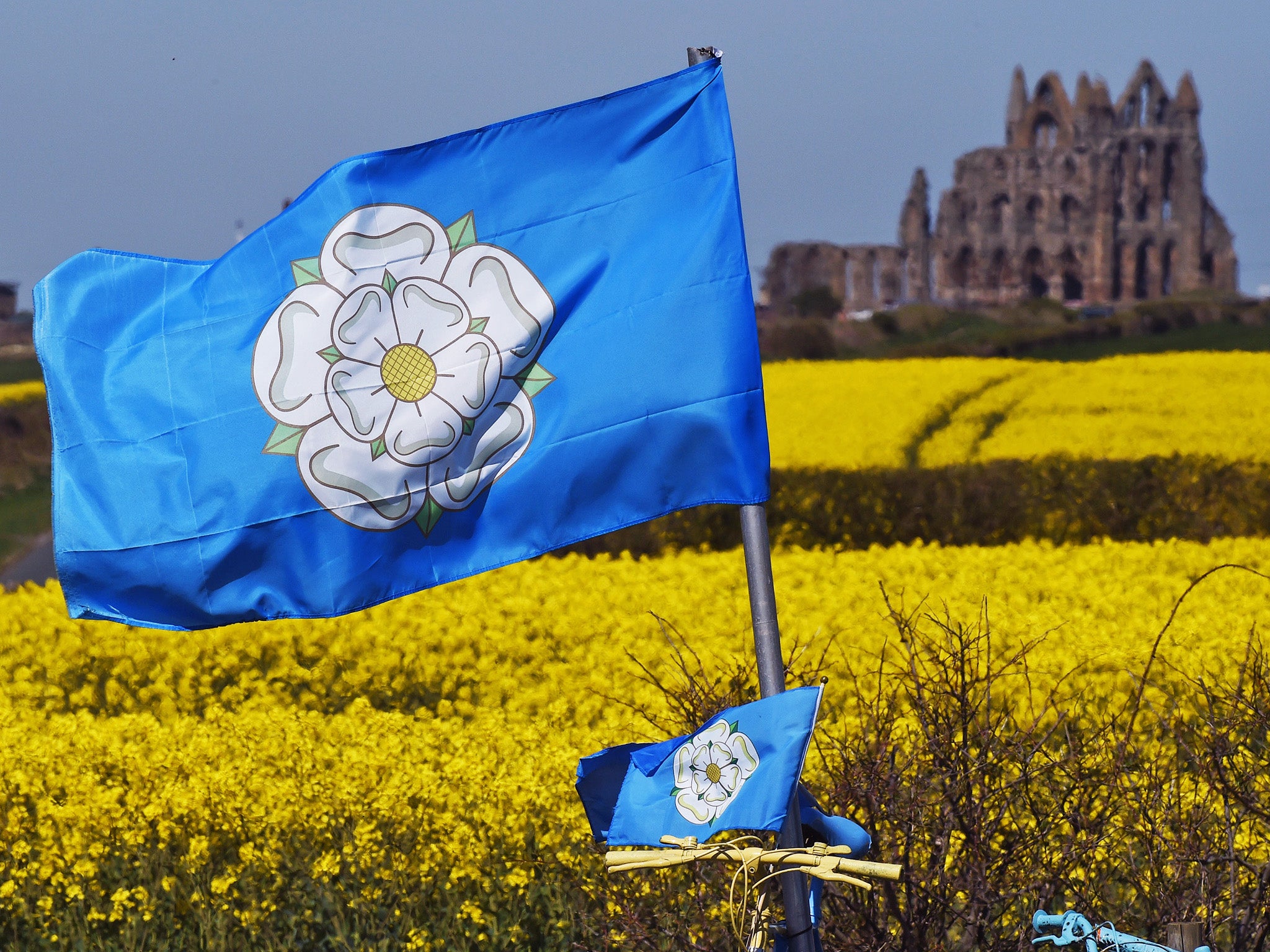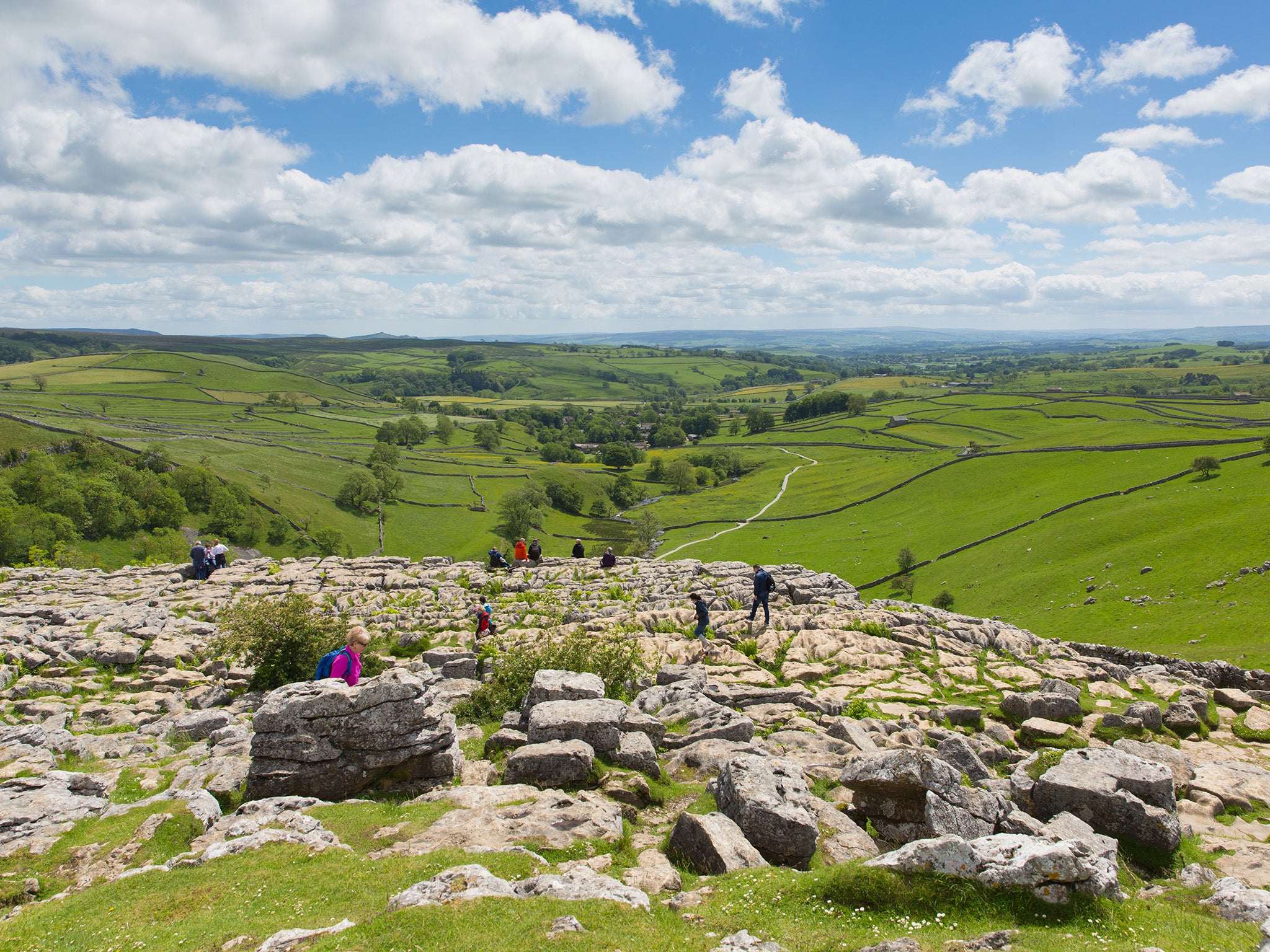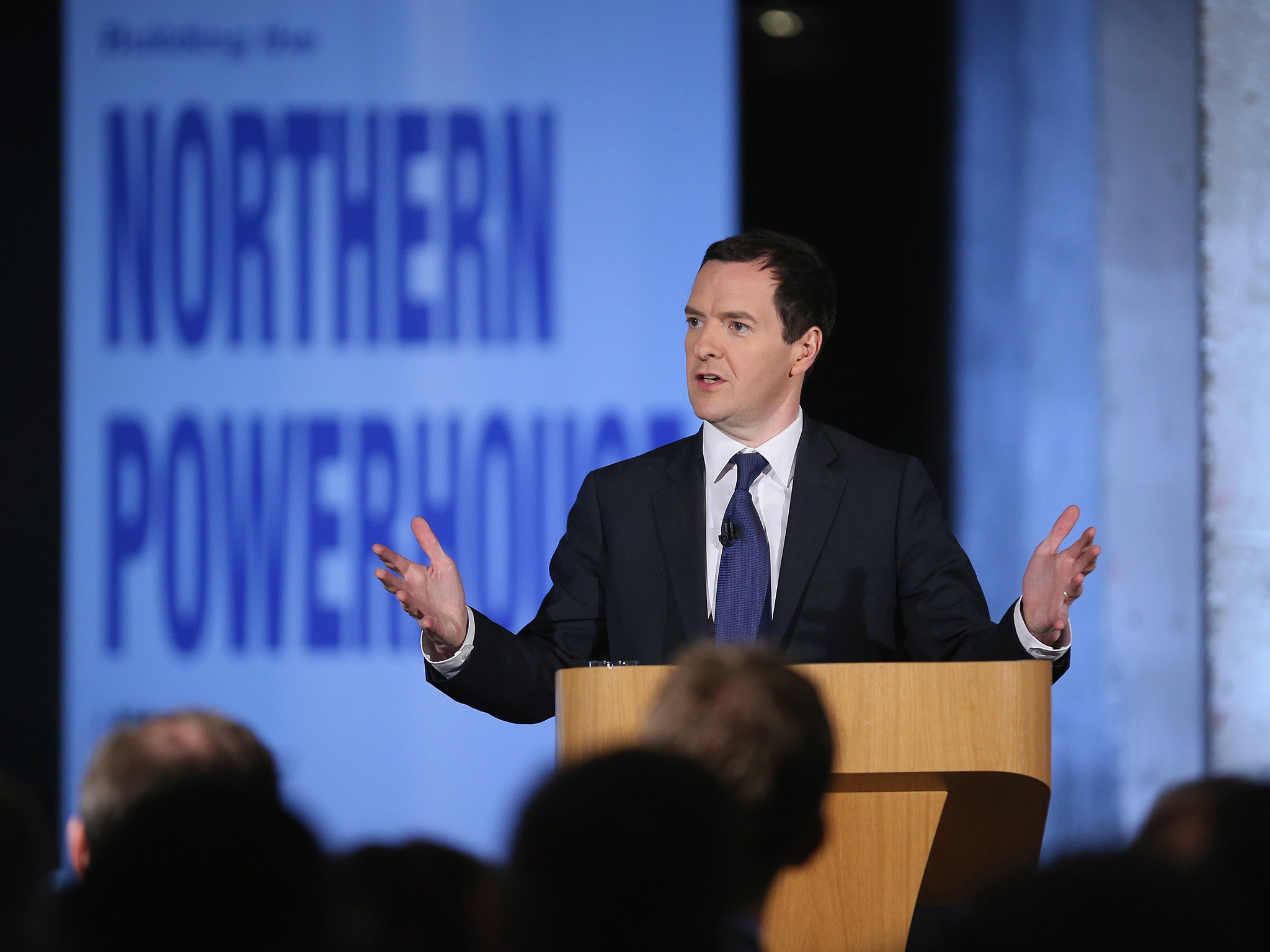Brexit, Catalonia, Scotland... Yorkshire? 'God's own county' is pushing for devolved independence
There's nowt so queer as folk... but the Yorkshire folk who want their own financial autonomy are on to something. Separation’s in the air across Europe, and the biggest county in Britain wants to take control of its purse strings

The news that Yorkshire wants to set up its own international football team sounds like something straight out of a Boy’s Own adventure, or perhaps the Python-esque 1970s TV series Ripping Yarns.
It summons up images of Alf Tupper, a fictional working-class runner from comic series The Tough of the Track, beating London toffs in his hobnail boots and with a fish supper his only reward – these plucky northern types thinking to take on the entire world, powered on by nothing more than true Yorkshire grit.
This same grit had people gleefully declaring that, were Yorkshire its own country, it would have finished 12th in the medal table at the 2012 London Olympics, thanks to the White Rose athletes’ collective haul of seven golds, two silvers and three bronzes.
But the Yorkshire international football team plan is no joke, no fantasy; the people behind it have bid for membership of Conifa, an organisation for states and regions not acknowledged by the international footballing body Fifa. And it’s a move symptomatic of Yorkshire’s growing appetite to be recognised as the powerful force it deserves to be: not just in terms of sporting achievement, but as a people in control of its own destiny... and purse-strings.
As a Lancastrian, the traditional enemy of the Tyke, I should perhaps feel duty-bound to make a trans-Pennine gag about Yorkshire’s bid for devolution from central Government. Aye, I should say.
Let’s have a checkpoint on the M62: maybe a wall across Todmorden. They can’t do proper pies, anyway. But even old enmities can be set aside in the face of the patently obvious; Yorkshire – just like the rest of the North – has suffered too long as the poor relation when it comes to the way taxpayers’ money is spent across the country.
There’s a wind of separation in the air at the moment. Brexit, of course. Catalonia. But Yorkshire doesn’t want to withdraw from the UK – it wants independence of a different kind: the independence to spend its share of public funding where it’s best needed.
Some context. Yorkshire as a region has a population of almost 5.4 million, greater than that of Scotland. It’s economy is bigger than that of Wales. It has an area of nearly 12,000 sq km, comprising coastline, mountains, miles of open countryside and cities. Three of the 10 largest cities in the UK – Leeds, Sheffield and Bradford – are in Yorkshire.

Yorkshire, therefore, is a big deal, however you slice it. But you wouldn’t know that from the proportion of public money spent there. The latest figures from the HM Treasury regional analysis report, as of just under a year ago, put public spending per head of population in Yorkshire and the Humber at £8,791 a year.
This is much less, of course, than London at £10,129, and comparable northern regions such as the North-west (£9,387) and the North-east, which at £9,472 per head gets the most money outside London.
So far, so an age-old tale of Northerners with a chip on their shoulders, right? Well of course London should get more money, it’s the capital. It’s the economic hub of the country. It’s where most people live. It’s London. But it’s not just about the money, it’s about who gets to decide how it’s spent. And it’s not just about London.
As you’ll see from above, Yorkshire gets less per head than other comparable regions. And the reasons for this are at the heart over the current unrest about Yorkshire’s sputtering devolution process; other areas are much further on the devolution path and, because of that, have unlocked more government funding and more powers to spend that money as they see fit.
The whole regional devolution idea was first announced by George Osborne when he was Chancellor of the Exchequer in 2015. English cities would get elected mayors and powers – notably housing and transport – would be put in the hands of local people. It all seemed to go swimmingly as elections were held and elected mayors appointed in Liverpool, Greater Manchester, the West Midlands… but not in Yorkshire.
Four months after Osborne’s announcement, five separate applications were submitted to central Government for devolved powers, followed by a sixth proposal called One Yorkshire which had the backing of 17 of the 20 local authorities in the region.
The other proposals centred on the main population hubs; the Leeds City Region – which would also take in Bradford, Kirklees and York among its supporters – and the Sheffield City Region, incorporating Barnsley and Rotherham. This was in addition to one that covered the aforementioned York along with the rest of North Yorkshire and the East Riding, and a bid placing Hull at the centre of a devolved Yorkshire, and Greater Yorkshire, backed by several of the authorities who had also supported other bids.
By October 2015, the Government had approved one bid: the Sheffield City Region, which would give their elected mayor direct control over transport and strategic planning, as well as a £900m spending pot. It appeared devolution for Yorkshire had begun.
However, it swiftly stalled. Some of the partners – notably Doncaster and Barnsley – had issues with how the proposed City Region would be run, and the bid spiralled into acrimonious disputes, eventually being declared all but dead in September this year. This left Yorkshire without a single successful devolution bid in the two-and-a-half-years since Osborne had come up with the whole idea.
The other factor in all of this is the Northern Powerhouse. A laudable idea, generated by the coalition government and then championed further by the Tories under Cameron and Osborne, the plan involved investment in the North: a joined-up thinking, ongoing project which would figuratively and literally connect the great cities of the North, from Liverpool to Manchester to Leeds to Hull. It certainly seemed that under the Cameron government, the North was at last getting the attention it deserved: a bespoke regeneration scheme and the long-awaited devolution of powers and money.

But George Osborne is now the editor of the London Evening Standard, and the North is well and truly off Whitehall’s agenda, or so it feels like. Because while the Northern Powerhouse might be a nice buzzword, if its vision to create in the North a business and economic network to challenge the South-East is ever going to be more than lip-service, it can only work with the proper infrastructure in place. And there it all ties together.
Infrastructure at its most basic level means transport, which is the lifeblood of business. And at the sharp-end of life in the North is the day-to-day reality of transport in all its forms being woefully inadequate. The trains are overcrowded, late and trundle along on outmoded rolling stock. Anyone using the bus service will be resigned to it not turning up at all at least once a week. Roads are choked with traffic, pitted with pot-holes, and not fit for purpose.
This is what devolution was meant to sort out. Instead of going cap in hand to London to beg money for highways works or better train systems, the Yorkshire regions would be able to spend the money on things that cannot seem the slightest bit important to people in London. And that, in turn, would kickstart the Northern Powerhouse.
Perhaps part of the problem is that Yorkshire is too vast a territory, comprising many big population centres, and coordinating a single, focused bid for devolution is proving difficult. But this has gone on long enough, even a Lancastrian offcumden like me can see that (the term they use around these parts to describe someone who’s moved into the area. It was 16 years ago, but I’ll always be an offcumden).
Yorkshire has the potential to be a mighty force in the British economy, but to do that it needs to be able to help itself. It is currently hamstrung by too many options on the table. What is best for Yorkshire? One elected mayor covering the whole region? Mayors in the main population centres? A geographical split, but with both sides (East and west? North and south?) working together?
The Government has so far refused to acknowledge the One Yorkshire bid for a region-wide devolved body to run the whole of Yorkshire and the Humber. But while the arguments rage on, it is the people who are suffering. The time to set aside differences is now, and for the Government and Yorkshire to come to an agreement on how devolution will proceed. And when that finally happens, Yorkshire will shine.
Because as a Lancastrian living in the White Rose County, I can say this with some authority: don’t worry about putting money into the hands of Yorkshire folk – they’ll certainly spend it wisely.
Join our commenting forum
Join thought-provoking conversations, follow other Independent readers and see their replies
Comments
Bookmark popover
Removed from bookmarks